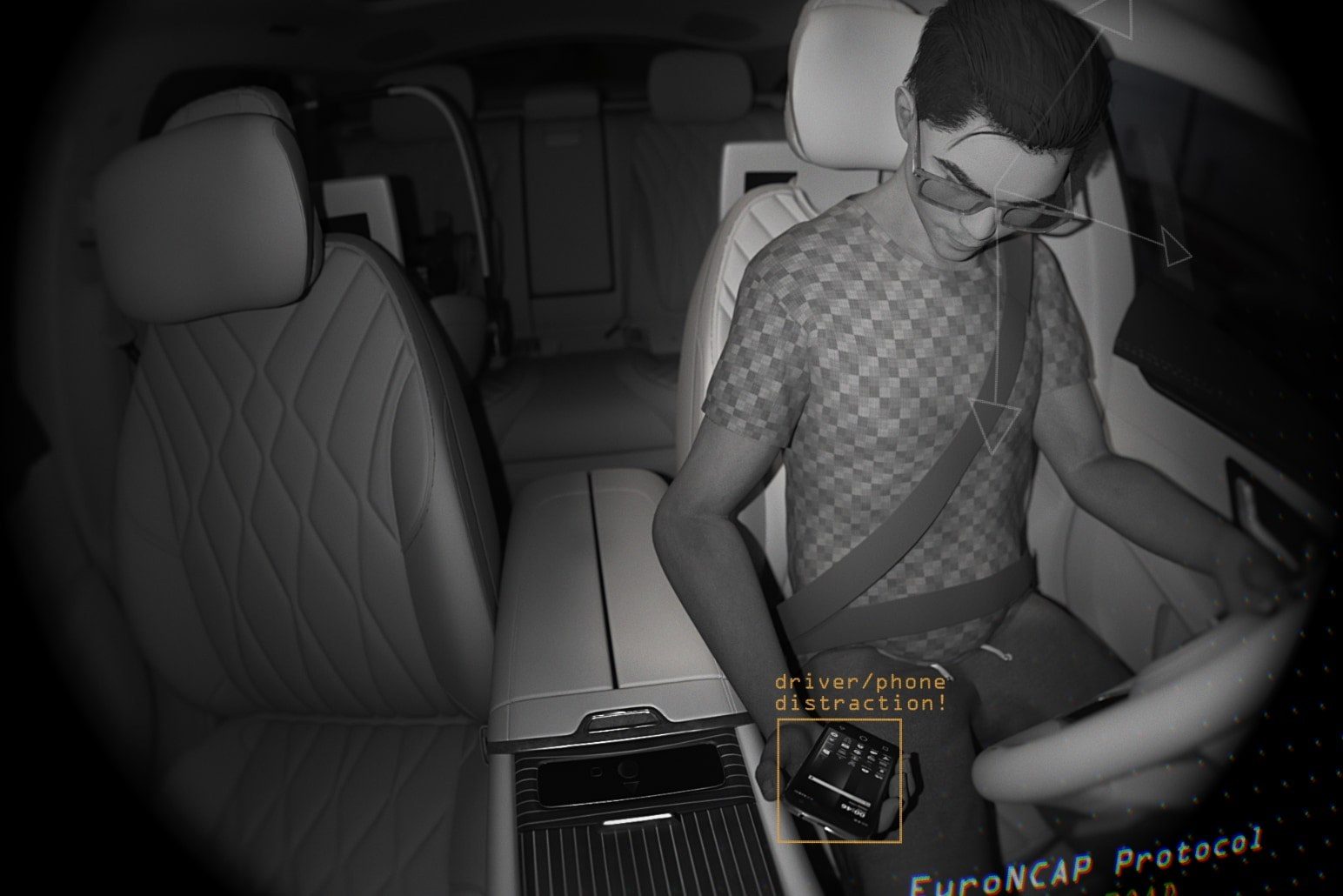
Devant and Seeing Machines Join Forces To Enhance Transport Safety
Over the last decade, the automotive industry has undergone numerous technological transformations. Propelled by the highly anticipated arrival of autonomous vehicles, car manufacturers, or Original Equipment Manufacturers (OEMs) as they’re known, are under increasing pressure to develop vehicles with enhanced capabilities supported by artificial intelligence systems. Alongside the race to innovate, there is another pressing issue in the form of impending safety regulations.
A key aspect of this endeavour involves the incorporation of driver monitoring systems (DMS) which are specifically designed to identify and address hazardous driver behaviours. By actively reducing the likelihood of car accidents, these systems play an essential role in promoting overall vehicular safety. In fact, clear guidelines from car safety authority Euro NCAP, instruct that in order to meet future rating standards, all new cars will need to be fitted with a DMS system by 2026.
As a result of these regulatory stipulations, a rapid deployment of monitoring systems has commenced, as OEMs around the world look to adopt interior sensing to meet safety requirements.
In order to meet Euro NCAP deadlines, DMS must be simultaneously engineered into dozens of new vehicle models, however each major vehicle platform has a different cabin layout and camera location. This poses a significant challenge for OEMs, as their DMS supply contracts often involve multiple Tier 1 suppliers or system integrators, each of which has their own distinct camera hardware designs. These designs encompass various components such as sensors, lenses, lighting, exposure control firmware, as well as diverse processing hardware and computational capabilities. Consequently, critical DMS driver impairment safety features need continual ongoing development to advance the regulatory safety roadmap.
At the forefront of these systems, sit Seeing Machines who are experts in developing in-cabin, driver, and occupant monitoring systems (DMS/OMS). Leveraging advanced computer-vision technologies, their systems monitor in-cabin human behaviour to prevent accidents. Utilising artificial intelligence, these systems power a wide range of products that rely on information about the driver’s awareness and state.
A crucial part of ensuring that in-cabin monitoring systems perform correctly is thorough data collection. This is where Devant's position as a leading supplier of high-quality and human-centric synthetic data, reinforces Seeing Machines role as an industry-leader in vision-based monitoring systems.
Unfortunately, owing to limited time and cost factors, there exists a real risk that DMS systems may become rushed to market. Ultimately, this may lead to monitoring systems being shoehorned into new vehicle cabins without sufficient validation of their performance. Fed with insufficient data, these poorly tuned DMS systems will not only annoy drivers, but fail to adequately protect vehicle occupants.
Offering unparalleled data configurability, Devant delivers lifelike 3D simulations that can enable Seeing Machines and other machine learning developers to reliably generate any real-life scenario. In principle, this means Seeing Machines' knowledge of the fundamentals of driver distraction behaviours can be applied in Devant’s motion capture studio, as well as general platform development, to create a high-fidelity human animation database. As Seeing Machines delves into the realm of synthetic data exploration, the expectation is that Devant’s synthetic data will soon assume a pivotal role in generating an extensive array of distracted driver behaviours that align with the definitions set forth by NCAP.
By integrating Devant’s human-centric synthetic data into its systems, Seeing Machines can recognise several benefits. First and foremost, the flexible and customisable nature of synthetic data, means that Seeing Machines can meet the demand for more capable in-cabin monitoring systems while still upholding the stringent real world performance expectations.
Synthetic data also has the potential to remove much of the slow and expensive real world data collection activities, which often dominate in-cabin product development efforts. Instead, computer generated data generated by Devant, increases the ease of access to the exact data required. In many cases, synthetic data also provides information that would otherwise be impossible to attain safely, or at all, by real-world recording means.
Capable of generating higher volumes of granular human-centric synthetic data, Devant enables greater training of machine learning networks, which in turns supports more advanced functionality. As the understanding of driver states and associated safety risks advances, the availability of extensive synthetic data opens doors to the development of more comprehensive networks. Looking ahead, Driver Monitoring Systems (DMS) are poised to detect a broad spectrum of driver impairments, including alcohol or drug intoxication, as well as various medical conditions.
In partnership, Seeing Machines and Devant are jointly working on a platform that delivers synthetic validation data. This platform, known as the NCAP Validation Service, is being developed to establish a gold standard in the automotive industry. Its primary objective is to facilitate the rapid and seamless compliance of new vehicles with NCAP tests and diverse regulatory mandates. By introducing this innovative service, not only will OEMs and Tier 1 suppliers gain significant advantages, but it will also provide invaluable assistance to regulators in upholding stringent vehicle safety protocols.
To learn more about Devant and Seeing Machines vision and value proposition, download the white paper Do Not Believe Your Eyes.
The collaboration with Seeing Machines is a transformative milestone for Devant. Drawing upon Seeing Machines' extensive knowledge in DMS and human behaviour, coupled with Devant's cutting-edge simulation capabilities, establishes an unbeatable combination. Together, they pave the way for the development of unparalleled synthetic data, facilitating remarkable advancements in DMS systems.
Devant’s aim, in collaboration with Seeing Machines and future partners, is to continue to lead the synthetic data market and in turn, help revolutionise the speed of technological innovation across a variety of industries. By improving the performance of Machine Learning processes and DMS systems, Devant strives to make a significant contribution towards the ongoing reduction of traffic accidents, ultimately aiming to save lives.
